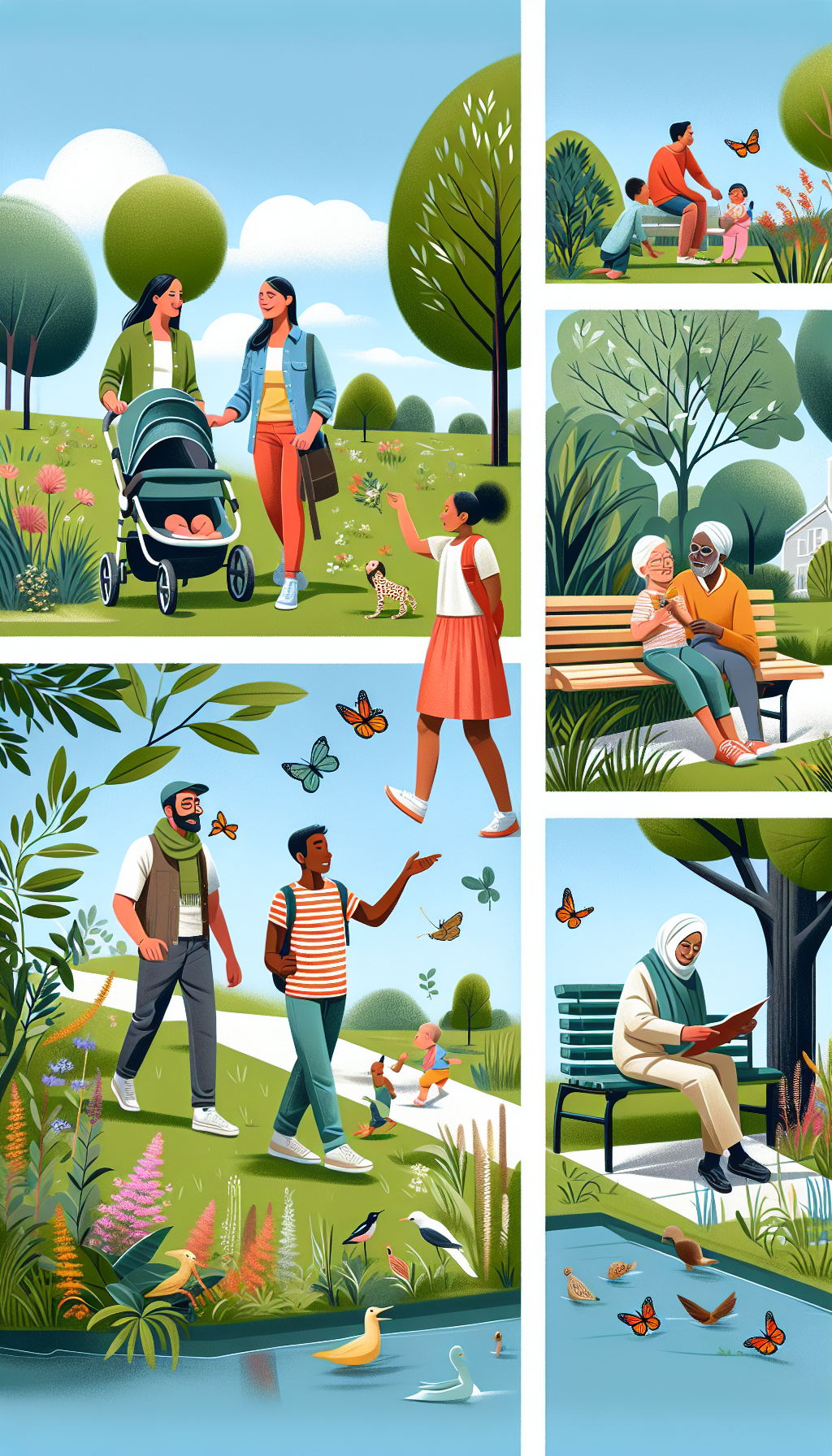In our modern world, where urban landscapes often dominate, the importance of nature in our lives can sometimes be underestimated. Yet, the impact of natural environments on sensory well-being is profound, influencing not just our mental health but our physical and emotional state as well. This article delves into the intricate ways that nature affects our senses, contributing to overall sensory health, and explores strategies to harness these benefits in our daily lives.
The Sensory Experience of Nature
Nature engages all five senses in a way that can recalibrate and rejuvenate our sensory system. The gentle rustling of leaves, the soft murmur of a stream, or the distant call of a bird can provide auditory stimulation that is soothing and restorative. Visually, the rich tapestry of colors and dynamic patterns found in natural settings can enhance visual processing and attention. The scents of a forest after rain or the salty tang of the ocean air have been shown to have calming effects on the nervous system. Furthermore, the tactile experiences of walking barefoot on grass or feeling the rough bark of a tree can ground us and promote mindfulness.
Auditory Stimulation and Focus
The sounds of nature are not just pleasant; they can have a tangible effect on our ability to concentrate and focus. Research on sensory stimulation has revealed that natural sounds can enhance cognitive functioning and reduce stress levels, which is crucial in achieving a state of flow and productivity.
Sensory Feedback and Environmental Interaction
Engaging with nature also provides essential sensory feedback that aids in our spatial awareness and coordination. In virtual reality environments, designers attempt to mimic these interactions to create immersive experiences, underscoring the significance of sensory input in our interpretation of and interaction with the world around us.
Emotional Regulation and Nature
Natural environments can also play a role in emotional regulation. The sensory input provided by nature can help to modulate emotions, providing a calming influence that can be particularly beneficial for those dealing with anxiety or stress.
The Science Behind Nature’s Healing Effects
Several studies have explored the physiological responses to natural stimuli, with findings indicating that exposure to nature can lower blood pressure, reduce cortisol levels, and increase feelings of well-being. For instance, the practice of ‘forest bathing’ or Shinrin-yoku, which originated in Japan, has been linked to improved immune function and a decrease in the risk of chronic diseases.
Nature and Sensory Health
Sensory health is a critical aspect of overall well-being. It encompasses the efficient operation of all our senses, enabling us to navigate the world safely and enjoy life to its fullest. The sensory health category on Avix Health provides a wealth of information on maintaining and enhancing this vital component of our health.
Incorporating Nature into Sensory Therapy
Given the benefits of natural stimuli, it’s not surprising that sensory integration therapy often incorporates elements of nature. This form of therapy is tailored for individuals who experience sensory processing challenges, such as those with Autism Spectrum Disorder or sensory processing disorder. By integrating natural elements into therapy sessions, therapists can create a more engaging and calming environment for their clients.
Sensory Integration Therapy for Adults
While sensory integration therapy is commonly associated with children, adults can also reap significant benefits from this approach. For adults dealing with sensory processing issues or who are simply overwhelmed by the sensory demands of modern life, engaging with nature can be a powerful tool for restoration and balance.
Strategies for Enhancing Sensory Well-being Through Nature
Sensory Gardens
Designing sensory-inclusive playgrounds and gardens is one way communities are recognizing the importance of sensory experiences. These spaces are intentionally created with a variety of plants, textures, and interactive elements that stimulate the senses in a controlled, but natural, environment.
Mindfulness and Sensory Experiences
The practice of mindfulness can be enriched by focusing on sensory experiences in nature. By paying close attention to the sensations of the moment, whether it’s the feel of the wind on your skin or the sound of waves crashing, we can deepen our connection to the natural world and enhance our sensory well-being. This connection between sensory health and mindfulness is an area of increasing interest and research.
Educational Resources for Sensory Health
For those interested in learning more about how to integrate sensory health practices into their life, exploring sensory health education can be invaluable. These resources often provide strategies and insights into how to make the most of our sensory experiences for better health and happiness.
External Resources for Further Reading
To further explore the connection between nature and sensory well-being, here are some niche resources:
- American Horticultural Therapy Association: Offers insight into the therapeutic benefits of horticulture and how it can be used to improve sensory well-being.
- International Society of Nature and Forest Medicine: Provides research and information on the science behind the health benefits of forest environments.
- Sensory Trust: A UK-based charity that works to make places more accessible and enjoyable for people with sensory impairments.
- The Center for Health Design: Explores how design impacts health and includes resources on creating healing environments that engage the senses.
- Mindful: Offers practical guidance on mindfulness practices, including those that involve sensory engagement with nature.
Nature’s bounty is not just a source of aesthetic pleasure but a powerful, multi-sensory therapeutic tool that can play a critical role in our sensory health and overall well-being. By intentionally incorporating natural elements into our lives and therapy practices, we can tap into the inherent restorative power of the natural world.



